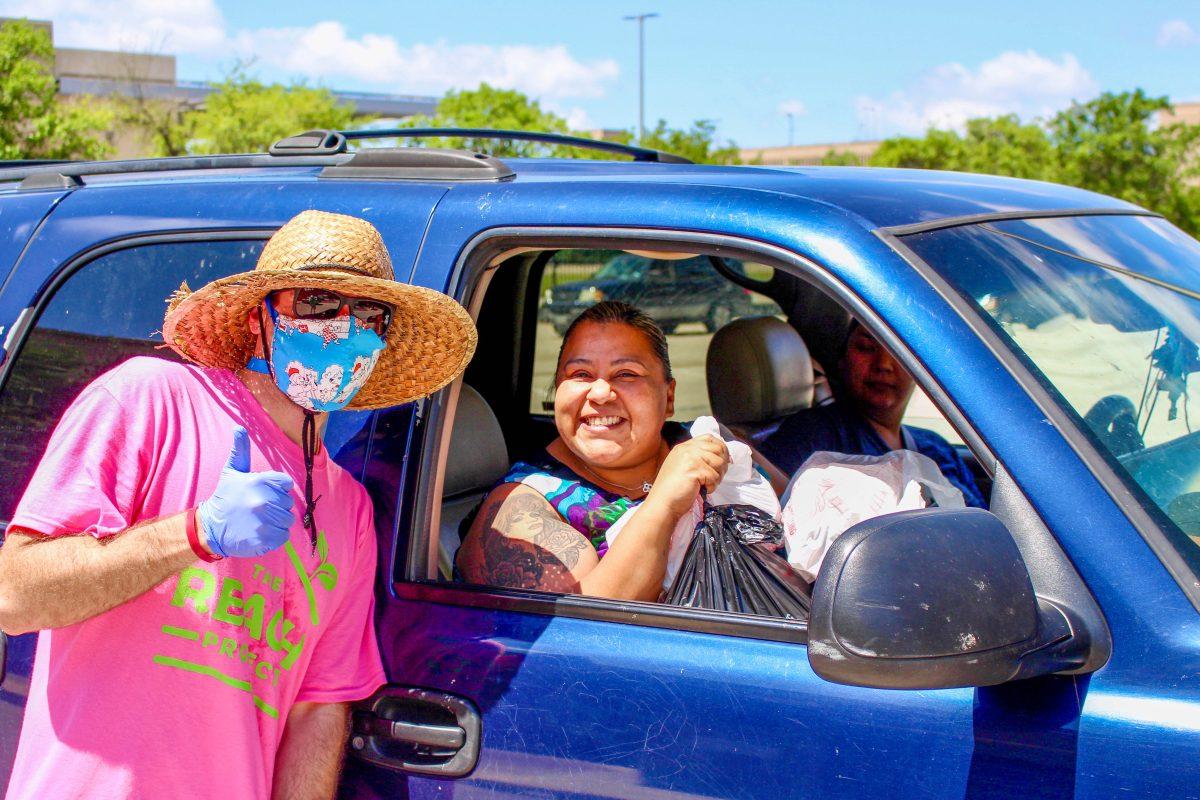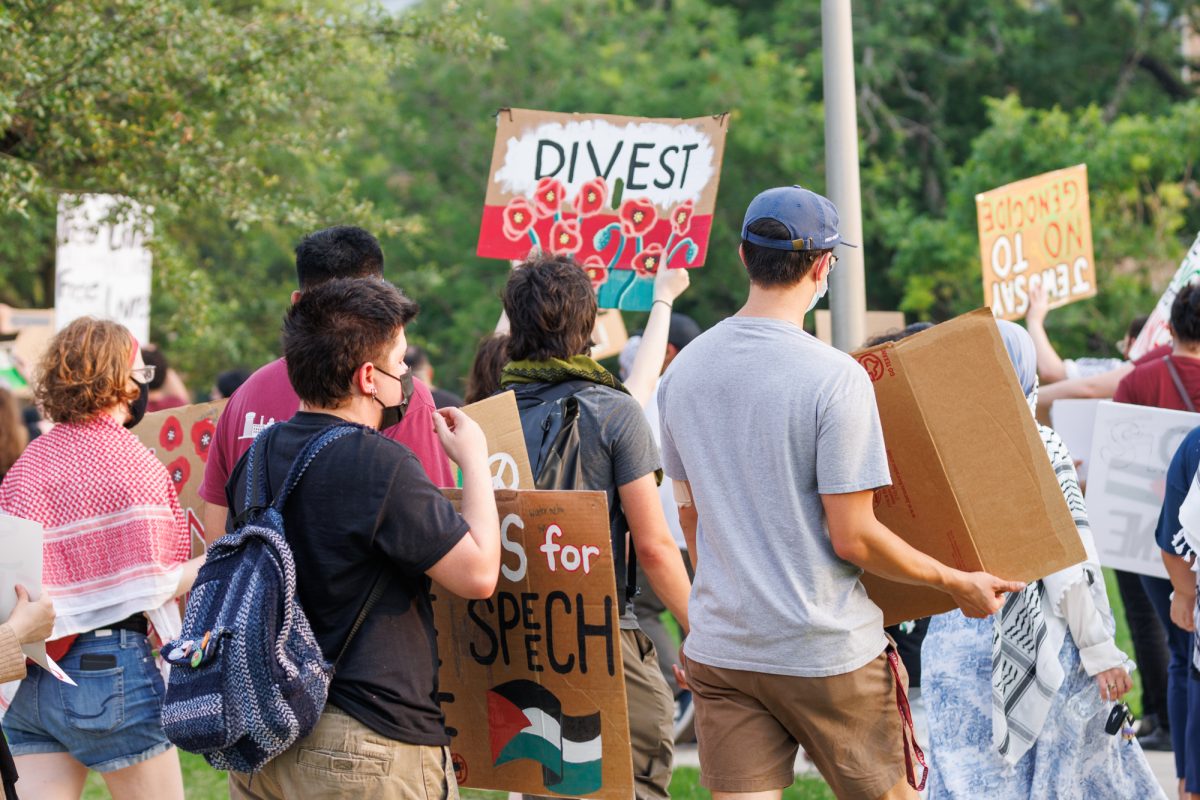With their first food distribution, the REACH Project provided 600 meals to the families of Texas A&M’s support staff members who have been laid off as a result of the coronavirus pandemic.
The REACH Project — which stands for respect, empowerment, aspiration, community and health — is a nonprofit organization that was started in 2017 by Max Gerall, Class of 2018. During the pandemic, the organization has shifted its purpose to provide free meals to A&M staff and support local restaurants facing financial instability.
Gerall founded the outreach committee after developing friendships with service workers on campus and realizing their need for further assistance.
“Our mission is to create what we call self-sustaining, higher education ecosystems, weaving together university students and resources to benefit everyone in the community,” Gerall said. “We focus on the support staff for service workers in college towns, helping connect them with everything from affordable housing to GED attainment, credit score [and] naturalization.”
Katy Roberts, business and management senior and member of the REACH Project, said support workers are referred to as Invisible Aggies because they are often overlooked despite the work they do campuswide.
“Anyone who works on food services, maintenance, gardens [and] janitorial [services] who keep everything running at A&M [is] an Invisible Aggie,” Roberts said. “An Invisible Aggie is just as much as part of the Aggie family as you and I are.”
Shannon Van Zandt, a professor in the Department of Landscape Agriculture and Urban Planning and Chair of the REACH Advisory Committee, said although the organization started with an effort to address the Invisible Aggies’ housing and healthcare issues, the recent lay-offs have given them a new purpose.
“We shifted the focus to the time being,” Van Zandt said. “When the pandemic hit, we recognized that this population was going to have some more critical, immediate needs related to food security.”
Gerall said about 900 food service employees have been laid off due to the pandemic, and with that comes the inability to purchase food for themselves and their family.
“Many of the service workers on the Texas A&M campus live paycheck-to-paycheck,” Gerall said. “When that paycheck stops coming in, families are forced to incur debt just to make ends meet.”
One thing the REACH Project is focusing on explicitly that they know they can have an immediate impact on is providing family meal packs of four, Gerall said.
“We have partnered with local restaurants and caterers, purchasing family meal packs [and] distributing to the Invisible Aggies free of charge,” Gerall said. “We’re benefiting not only the Invisible Aggies, but we’re also helping local restaurants catering in the area to be able to keep their employees employed.”
The organization’s first food distribution took place on Easter Sunday, with each new distribution to be held on Tuesdays and Thursdays throughout the next month, Van Zandt said.
“We have about 150 families signed up to receive food, and we handed out almost 600 meals [April 12] for our first food distribution,” Van Zandt said. “We hope to continue doing that each week as long as the pandemic lasts.”
Gerall encouraged students to participate in the cause by volunteering at weekly food distributions as well as donating any available resources they can spare.
“We are looking for great volunteers that are willing to come out and help us pass out the meals,” Gerall said. “We are always looking for physical donations. Right now, we have enough food [and] funds to feed 150 families, [but] there are over 900 who have been laid off.”
Leon O’Neal Jr., communication sophomore and starting safety for A&M’s football team, is also a member of the organization and created a video promoting the REACH Project GoFundMe for Invisible Aggies. To date, he said over $40,000 out of the $50,000 have been raised within two weeks.
“Students can participate by just giving a little money that they have, and if students don’t have money to donate, they can spread the word,” O’Neal said. “The video was just [me] trying to help as much as I can with the position that I am in, using my stage for a greater good.”
Between the money raised and the hot meals REACH has distributed, O’Neal said he is motivated by all that has been achieved by the organization during the pandemic.
“It’s very inspiring how, during the coronavirus, a lot of people [are] distant from each other [but] still being able to help those who are in need,” O’Neal said. “That is the by far one of the greatest things I’ve ever seen.”










